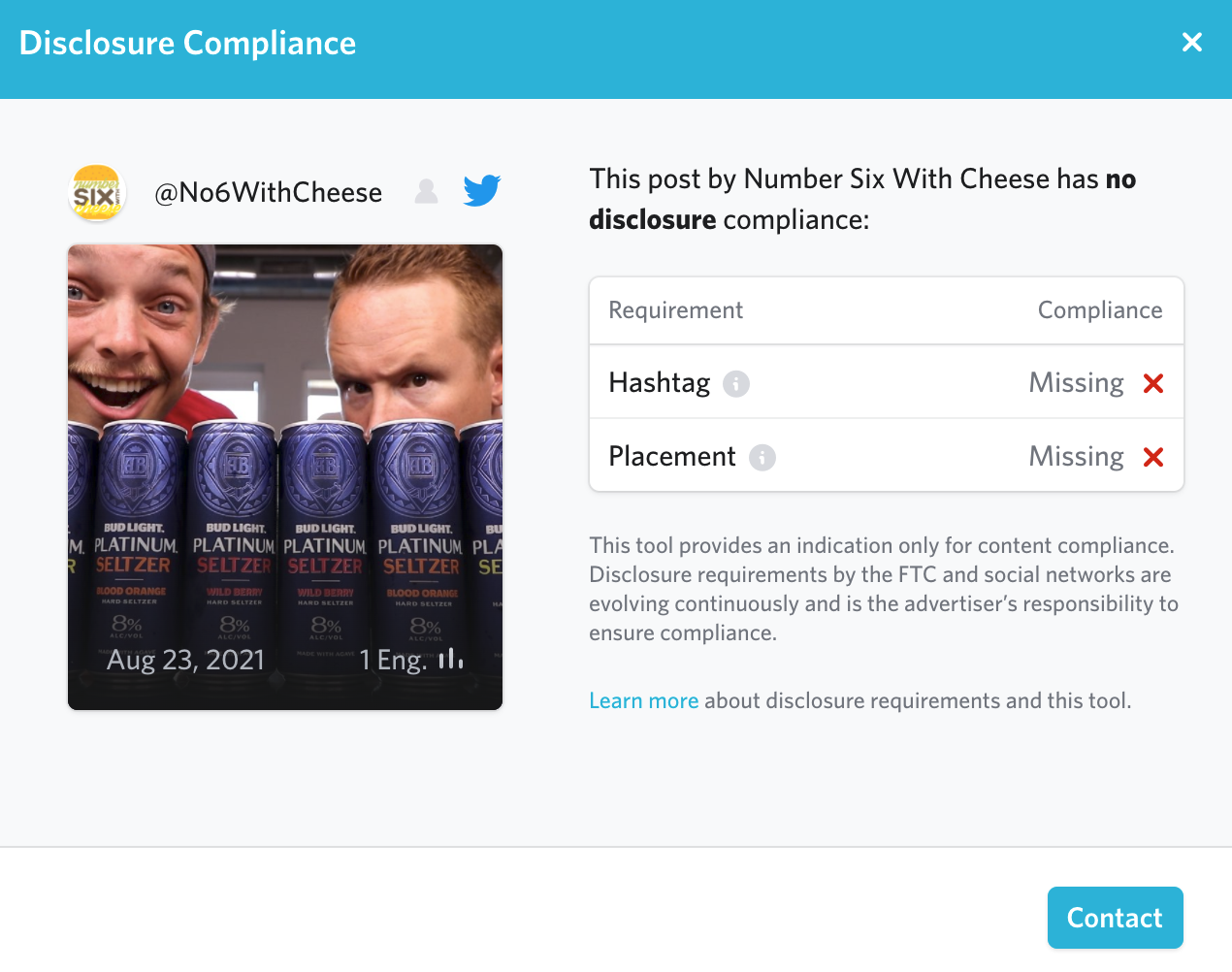What is Julius?
Julius is an influencer marketing software. Learn more about Julius here or view other related influencer marketing content here.
Influencer marketing operates on the notion that consumers are more likely to make purchasing decisions on recommendations from people they know. Whether they’re from friends, colleagues, or social media influencers, these recommendations often have more value than traditional advertisements. Those recommendations work so well because a consumer trusts the information they’re receiving.
That’s been the logic behind many advertising regulations and standards – giving consumers accurate information to help them make informed decisions. The FTC created guidelines for influencer marketing to help clarify for influencers what counts as honest and accurate, and what counts as deceptive.
The FTC guidelines are a series of rules and regulations that determine what qualifies as an adequate disclosure of a partnership on social media. Failing to follow the guidelines can get your company warned, fined, or sued. But fear of punishment isn’t the only reason to follow the guidelines, and they’re not as hard to follow as you think.
We put together an ebook on everything you need to know about the FTC guidelines and influencer marketing. Download it here, or read on for the cliff notes.

Clear and conspicuous
Because influencer marketing is, at its core, a creative profession, there’s no defined set of terms or phrases influencers can use to disclose. Just like no two campaigns look exactly the same, neither does every disclosure. Though you’ll commonly see influencers use hashtags like #ad or #sponsored, or even using platform specific tags like Instagram’s “paid partnership” tool, there are a few different ways to arrive at the same point. Disclosures have to be “clear and conspicuous,” according to the guidelines, so that a consumer viewing the post is fully aware that it’s sponsored.
Naturally, every platform works a little differently. What counts as a disclosure on Twitter might not carry over to Instagram or YouTube. Disclosing a partnership on Twitch, the live streaming platform, will look differently to disclosing a partnership on Instagram.
No matter what platform your campaign is on, influencers have to go out of their way to adequately disclose the partnership. There should be no question in a consumer’s mind whether the post or review is sponsored.
Building Brand Trust
Failing to follow the guidelines, like we mentioned before, can land your company and your influencers a stern warning, a steep fine, or even a lawsuit from the FTC. But fear of punishment shouldn’t be the only reason you choose to disclose a partnership. Being proactive about your disclosures can help build trust with your audience, and even entice them to want to learn more.
There’s very little to lose when disclosing partnerships. Some marketers fear backlash against sponsored posts – they assume very few people want to see an ad in their feed, and won’t perceive it as authentic if the recommendation isn’t 100 percent organic. Luckily for them, it’s not a concern – there’s little to no impact on engagement at all. Many social media users are happy to see their favorite influencers making moves in their careers – and are even more eager to try to emulate their lifestyles with genuine product recommendations and reviews. If disclosing a partnership had a discernible effect on engagement, influencer marketing wouldn’t work – the whole operation is contingent on the authentic relationship an influencer forges with their audience.
If an influencer’s posts fail to engage an audience, it’s often a problem with the content not aligning with the audience, or the audience not aligning with the content – not with the disclosure.
Remember, influencers represent your brand like any other advertisement. If it’s a consumer’s first encounter with your brand is with an influencer who tries to disguise their partnership, they might perceive your brand as deceptive or untrustworthy. Making transparency a part of your messaging is an excellent way to build that trust, rather than erode it.
There’s more than one sheriff in town
Influencer marketing is a global phenomenon that reaches global audiences. To that end, the FTC isn’t the only governing body that regulates influencer activity. Most developed countries in the world have advertising standards to enforce, and many are including influencer and celebrity endorsements in those regulations. Countries like Germany, France, and the UK actively enforce their regulations, while countries like Saudi Arabia and the United Arab Emirates require influencers to “register” as advertisers.
It’s a sign that as the industry grows, so will the expectations of brands and their influencers to comply with legal standards. It’s no longer the wild west on social media – and that’s for the better.
If you want to learn more about FTC disclosures, how to follow them, and why you should care about them, download our ebook now to get everything you need to know for your next influencer marketing campaign.
-1.png?width=239&name=Julius%20By%20Triller%20-%20Wordmark%20-%20Purple%20(1)-1.png)







